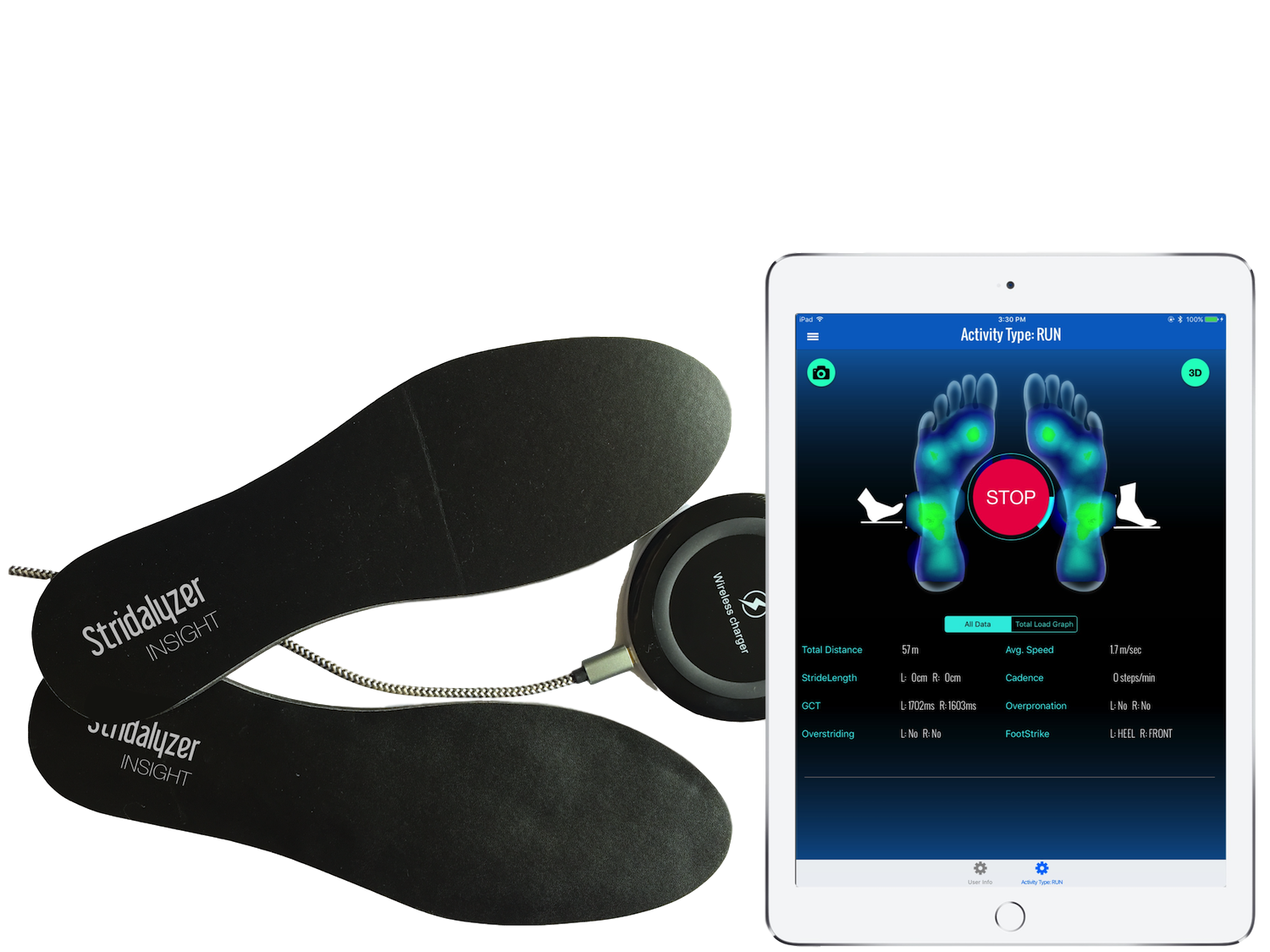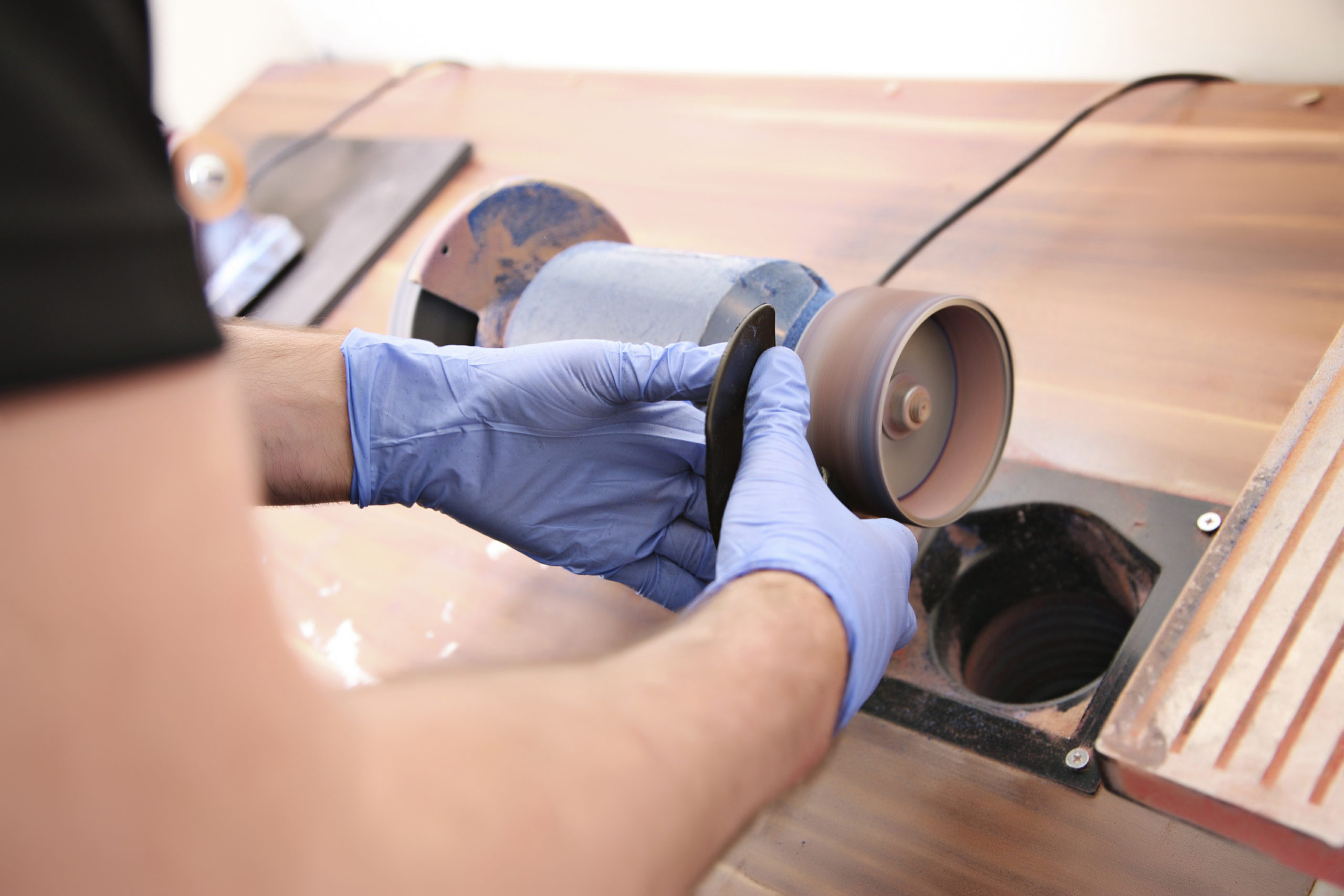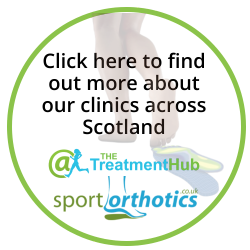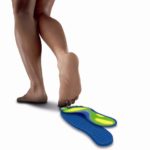Biomechanical assessment Glasgow, Hamilton, Aberdeen, Edinburgh, Doune and Ayr
Our biomechanical assessment clinics have won the whatclinic.com customer service 5 star award and 3 best rated Podiatry clinic consistently over the last 10 years. A biomechanical assessment is the starting point to establish why you may be experiencing pain on activity. Furthermore, it is important that your Podiatrist or Orthotist is specifically trained in biomechanical assessment.
Our team of HCPC registered Podiatrists and Orthotists undertake all of our biomechanics clinics in our clinics across Scotland in Hamilton, Glasgow, Aberdeen, Edinburgh, Doune and Ayr.
The Treatment hub team are part of the Sport Orthotics Scotland group the largest dedicated private orthotics & biomechanics team in Scotland. If you want find out more about sportorthotics.co.uk you can click on the sport orthotics logo.
What types of biomechanical assessment are there?
There are a variety of considerations which have a bearing on specifically what type of biomechanical assessment is appropriate for any patient. For example
- Type of activity e.g. running, walking or football
- The age of the patient e.g. the growing child, or adult may have different presenting issues
- Underlying conditions e.g. cerebral palsy, stroke or polio
It is important to know that each of the points above have a bearing on how your biomechanical assessment would be undertaken. Fundamentally, your unique presentation, medical history and any underlying condition are all factors to consider.
This is also part of the considerations given as to how any issues would be managed.
It is also worth noting that all assessment types are available at all of our clinics in Scotland.
For further information on the specifics of these assessments please click on one of the links below.
Why should you choose us?
The Treatment Hub team are truly specialists in their field and dedicate their clinical time to the specific field of biomechanics and orthotics. In addition to this, our clinical team are uniquely trained in custom orthotic manufacturing, orthotic design and prescription.
Many clinicians provide orthotics by having a 3rd party make these on their behalf. This means orthotic design and manufacture is undertaken by a technician rather than a Podiatrist or Orthotist.

Who makes our custom foot orthotics?
Sport Orthotics and treatment hub team have our own orthotic lab where we manufacture, adjust and repair custom orthotics while you wait.
Uniquely, our Podiatrists and Orthotists undertake additional post-graduate in-house training on assessment and manufacture. As a result of this training we can personally prescribe, design and manufacture your orthotics to address your biomechanical issues.
Importantly, any orthotic treatment provided by our team has a fully transparent online pricing structure. Our prices are fully inclusive of fitting, follow up, reviews and adjustments following supply.

What specialist equipment do we use?
General Biomechanical Assessment
Many of our patients have foot, leg, knee, hip and back pain from wear and tear issues from normal actvity. As such our Orthotists and Podiatrists will assess why you may have difficulty going about your normal activities
Sport Biomechanical Assessment
The impact of running is around 4-5 times body weight and is often when people become aware of biomechanical issues. Specific aspects of running biomechanics are examined in a different way from our general biomechanics assessment.
Neuro Biomechanical Assessment
The alterd biomechanics of patients with neurological assessment involves very specialist assessment skills. This involves video gait analysis to detemine the affect of any neurological issues on walking. Many patients with neurolgical issues such (e.g. stroke) have problems with both the swing and stance phase cycles of normal bimechanics. An Orthotist has very specific skils in assessing and managing these problems.
Child Biomechanical Assessment
Child development has a huge bearing on bioemchanics and changes in walking. Equally there are specific issues associated with growth that must be considered during the assessment of children. Over pronation or flat feet are often seen in children but are not necesarily abnormal. Children with neurological problems such as cerebral palsy will also have altered biomechanics, which is further complicated by growth. Our specialist Orthotists and Podiatrists have specilist knowledge of peadiatricc and can help you understand the reason for your child's biomechanics





